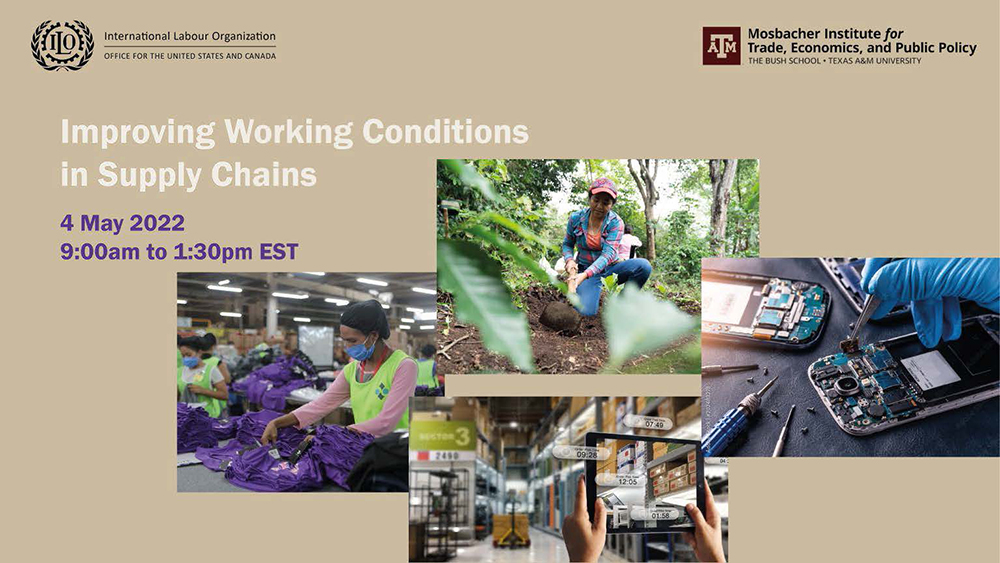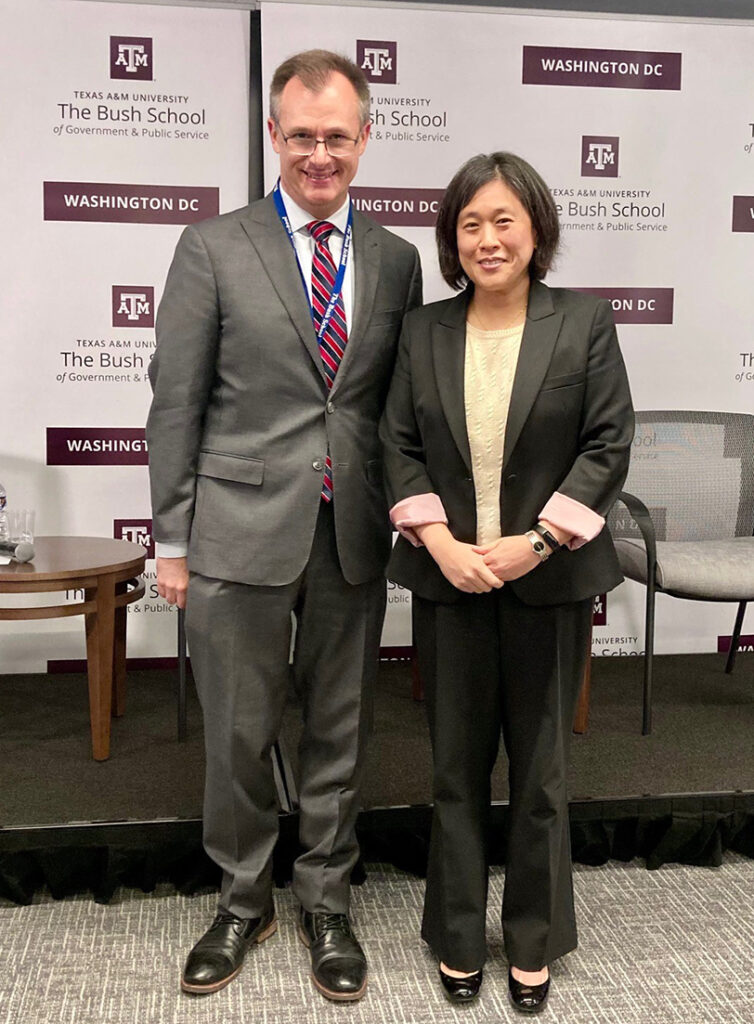
On May 4, 2022, the Mosbacher Institute at the Bush School of Government and Public Service at Texas A&M University partnered with the International Labour Organization Office for the United States and Canada (ILO-USAC) to host a hybrid (in-person and online) symposium on improving working conditions in supply chains. The symposium brought together policymakers, representatives of inter-government organizations, and academics to discuss the latest advances in understanding of the persistent supply chain challenges and possible policy solutions.
Headlining the symposium was a conversation between U.S. Trade Representative Katherine Tai and ILO-USAC Director Kevin Cassidy, moderated by Mosbacher Institute Director Raymond Robertson, on advancing equitable economic growth and worker voice. Tai explained her new “worker-centered trade policy,” which seeks to bring tri-partism to the formulation of trade policy, thus giving a voice to the government, business, and workers. Tai also highlighted the bi-partisan supported USMCA Rapid Response Mechanism, which has experienced some success in improving working conditions in supply chains by focusing at the facility level.

The symposium’s keynote speaker Thea Lee, Deputy Under Secretary for International Labor Affairs at the U.S. Department of Labor, spoke about the work of her bureau to combat international child labor and forced labor and the challenges of labor compliance in global value chains. She maintained that the framing is wrong when combatting child labor is seen as only being achieved at the expense of cheap goods. She discussed their use of new technology, such as supply chain tracing, and advocated for further tools to improve global labor standards and compliance.
The first session of the symposium examined current challenges and responses to improving working conditions and compliance, and featured the following panelists: Gabriela Inchauste (moderator), Lead Economist, Poverty, and Equity Global Practice, World Bank; Fabiola Mieres, Technical Officer, Labour Migration, ILO; Kelly Pike, School of Human Resource Management, York University; Gale Raj-Reichert, Associate Professor of Politics at Bard College Berlin; and Raymond Robertson, Director of the Mosbacher Institute at the Bush School of Government & Public Service, Texas A&M University.
Closing out the symposium, the second session focused on new approaches and opportunities. Comprising that panel were Anna Pienaar (moderator), Executive Director of the Responsible Labor Initiative, Responsible Business Alliance; Josh Kagan, Assistant U.S. Trade Representative for Labor, Office of the United States Trade Representative; Scott Nova, Executive Director, Worker Rights Consortium; Arianna Rossi, Senior Research and Policy Specialist, Better Work, ILO; Jodi Short, Associate Dean for Research & Professor of Law, UC Hastings Law; and Peter Young, Deputy Head of the Trade and Agriculture Section, Delegation of the European Union to the United States.
The entire symposium, Improving Working Conditions in Supply Chains, can be viewed online.
The agenda and the speakers’ biographies are also available online.

